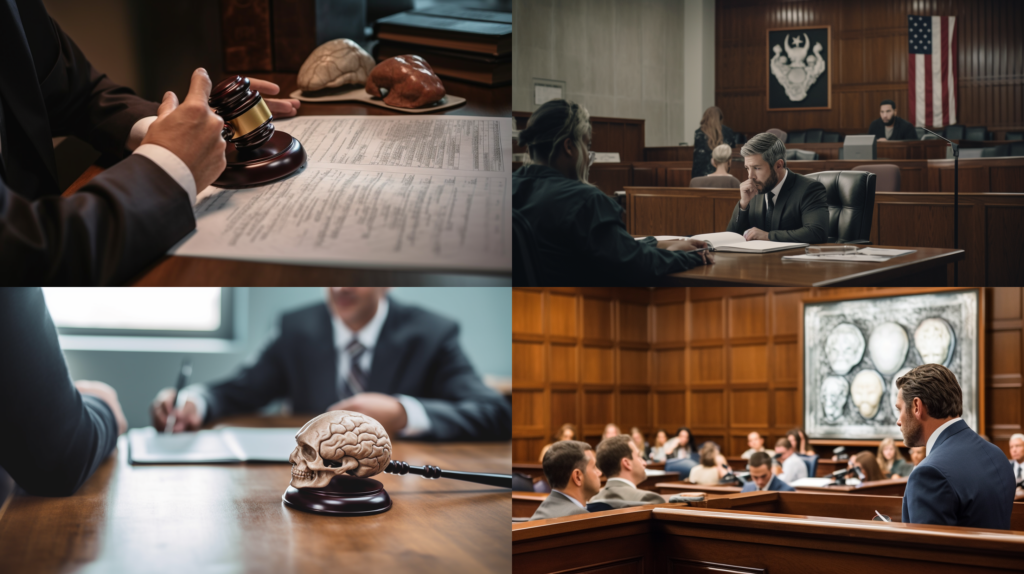
What are they?
Our team of lawyers at Houston Injury Lawyers, PLLC, has been asked this question by our clients over the years. And the answer to this question has changed over time as medical science has changed over time as well.
Over the last 15 years, with the media coverage and attention surrounding Chronic Traumatic Encephalopathy (CTE) and professional athletes, in addition to conflicts around the world in which American soldiers have been deployed, the diagnosis of traumatic brain injuries (“TBI”) has evolved as well.
While CTE is a chronic condition caused by multiple repeated brain traumas, there are also acute TBIs. Like a soldier, life can sometimes be a battlefield full of accidents, resulting in trauma to the brain. This trauma can be severe or mild. A TBI is simply an injury affecting the brain’s work.
Is a Concussion a Traumatic Brain Injury?
YES! In simple math terms (for you math lovers): concussion=TBI. Of course, to the insurance adjuster, a concussion is just a bad headache, not a TBI. Modern medicine classifies a concussion as a traumatic brain injury that affects brain function. Contrary to what the insurance adjusters would have you believe, a concussion should not always be dismissed as mild and temporary. And from what our team of injury Lawyers has seen, a concussion should always be taken very seriously.
Some concussions can be more favorable and have temporary effects, such as headaches and problems with concentration, memory, balance, and coordination.
However, we have seen cases where individuals continue to have the impact of a concussion that linger and severely affects their hopes, careers, family, and future. We have had clients diagnosed by their specialists with post-concussion syndrome and other longer-term ramifications of their concussion or TBI: traumatic Brain Injuries.
What is Post-Concussion Syndrome?
As we have seen with clients involved in falls, workplace accidents, offshore injuries, railroad injuries, bicycle accidents, and aviation accidents – post-concussion syndrome is real and can be severely debilitating—a portion of people who have a concussion experience long-term effects beyond three weeks. Persistent symptoms beyond the usually expected recovery period classify the syndrome.
The recovery period for a concussion is generally based on the severity of the injury and symptoms and the number of additional concussions in a person’s history.
Some of our clients have continued to experience headaches, vertigo, memory loss, fatigue, and brain fog for many months following an injury. We have even seen situations where these prolonged symptoms were incapacitating and changed the trajectory of a person’s livelihood and future aspirations.
We encourage our clients to have baseline neurological testing performed to establish the effects on the brain and symptomatology. And we always encourage our clients to follow up and to make every therapy appointment. For some, therapy can prove to be very beneficial. But for others, we have seen them forced to make substantial adjustments to their lives and dreams.
Accidents and Concussions
Suppose you have been involved in an accident of any kind and have been diagnosed with a concussion or post-concussion syndrome through no fault of your own. In that case, the lawyers at Houston Injury Lawyers, PLLC, are here to help ensure that you RECOVER. Our team’s focus is always on our clients’ recovery: 1) Physical recovery, 2) Emotional recovery, and 3) Financial recovery.
We have represented clients with concussions and post-concussion syndrome and are intimately familiar with traumatic brain injuries.
Call us for a free consultation at (713) 366-HURT and by visiting us at www.houinjurylawyers.com. Tip the balance of justice in your favor, and call us today.
* At Houston Injury Lawyers, our clients are our family. As personal injury attorneys in Houston, Texas, we work to help our clients and their families recover from their injuries. Tip the balance of justice into your favor by hiring us. For a free consultation, contact us at (713) 366-HURT or visit us at www.houinjurylawyers.com.
Legal Framework in Texas
In Texas, the legal edifice addressing brain injuries is intricate yet robust, designed to accommodate the multifaceted nature of such injuries. Statutory provisions and judicial precedents delineate the avenues available to victims, ensuring that their rights to restitution are comprehensively protected.

The Role of Legal Representation: Brain Injury Legal Compensation
Procuring proficient legal representation is paramount in navigating the Texas legal landscape effectively. Skilled attorneys are pivotal in interpreting applicable laws, formulating compelling legal strategies, and advocating fervently for their clients’ rights. They meticulously examine the circumstances surrounding the injury, establishing liability and quantifying damages with utmost precision.
Compensation Structures in Texas: Brain Injury Legal Compensation
Texas law prescribes diverse compensation structures, addressing both economic and non-economic damages. Economic damages encompass medical expenses, loss of earnings, and rehabilitation costs, while non-economic damages cater to pain and suffering, emotional distress, and loss of enjoyment of life. The articulation of these damages is crucial in securing equitable compensation, reflecting the comprehensive impact of the injury.
Legal Procedures and Timelines
Navigating legal procedures and adhering to stipulated timelines is integral in pursuing brain injury claims in Texas. The initiation of legal proceedings, meticulous preparation of evidentiary materials, and adept negotiation with insurance companies are key components of this process. Adherence to statutory timelines is imperative to avoid forfeiture of rights, ensuring that legal redress is pursued within the prescribed limitations period.

Settlement Negotiations and Litigation
Engaging in fruitful settlement negotiations is a central aspect of brain injury claims. It entails a thorough evaluation of damages, strategic formulation of settlement proposals, and effective negotiation tactics. When settlements prove elusive, litigation becomes the recourse, necessitating the presentation of persuasive arguments and substantiated evidence before the courts.
Importance of Medical Documentation
Comprehensive medical documentation is indispensable in substantiating brain injury claims. It entails meticulous collation of medical records, diagnostic tests, and expert opinions, serving as irrefutable evidence of the injury’s extent and implications. The credibility and thoroughness of medical documentation significantly influence the adjudication of claims, emphasizing its paramount importance.
The Verdict and Compensation Award
The culmination of legal proceedings results in the verdict, a judicial determination of liability and compensation. The award rendered reflects the holistic assessment of damages, encompassing both tangible and intangible losses. It symbolizes the legal system’s acknowledgment of the victim’s suffering and the corresponding obligation to redress.

Post-Judgment Proceedings and Enforcement
Post-judgment proceedings focus on the realization of the compensation award, involving the enforcement of judgment against the liable parties. It necessitates strategic enforcement measures, ensuring that the award is fully satisfied and the victim’s right to compensation is effectuated.
Continuous Legal Support and Counseling
Continuous legal support and counseling are pivotal in the post-award phase, facilitating the victims’ rehabilitation and readjustment. It underscores the sustained commitment to the well-being of brain injury victims, ensuring that their transition to normalcy is seamless and supported
In the domain of Brain Injuries in Texas, the convergence of legal acumen and compassionate support is essential in securing rightful compensation.
The intricate legal structures, coupled with the unwavering dedication of legal professionals, ensure that the rights of brain injury victims are robustly protected and redressed. Justice pursuit is not just legal but moral, reflecting our commitment to human dignity and wellbeing..
